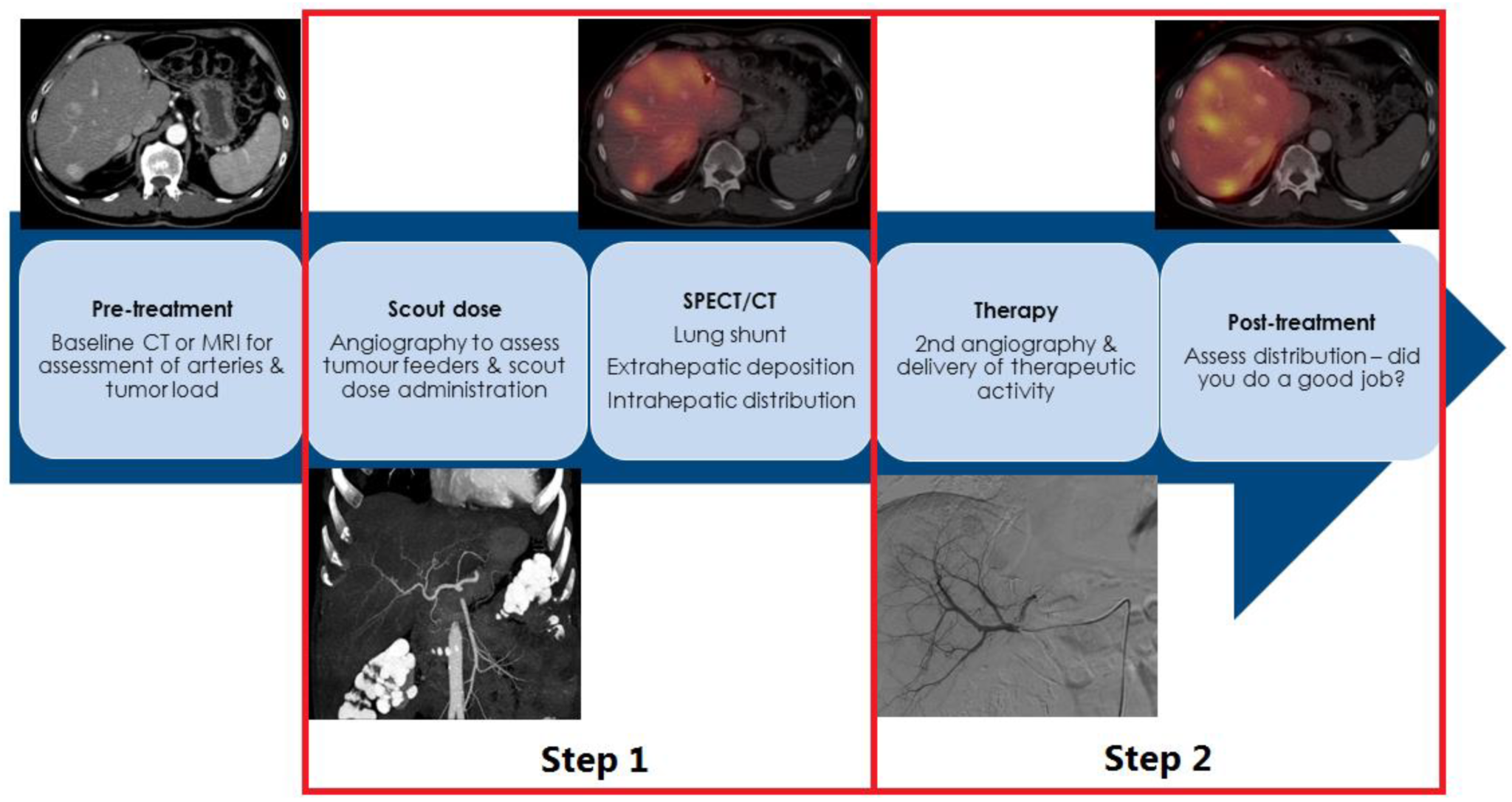Radioembolization Y-91 is designed to stop the growth of cancerous tumors by placing tiny beads of yttrium-90 directly into the tumor that are then absorbed by the tumor and destroyed it from within. This treatment can be used to treat uterine cancer, prostate cancer, and liver cancer with minimal side effects or recovery time required in most cases, making it a highly sought-after and beneficial procedure. Learn more about Radioembolization Y-91 at the Alamogordo Imaging Center today!
What is radioembolization?
Radioembolization is a minimally invasive and non-surgical procedure that treats inoperable liver tumors and helps prevent cancer cells from metastasizing. The procedure uses a radioactive substance, known as yttrium-90 (Y-90), to destroy cancer cells by blocking their blood supply and starving them.
Radioembolization is done with a catheter inserted through an artery in the groin, arm, or neck into the common hepatic artery that feeds blood to the liver.
What does it treat?
Radioembolization is a procedure that delivers tiny particles or liquid to certain areas of the body where tumors are located. When used for cancer, this treatment is called y-90 therapy. The y-90 therapy destroys cancer cells by blocking blood flow to them and causing them to die. This treatment can be used in many types of cancers, including prostate, breast, lung, and esophageal cancers.
Risks & Side effects
Radioembolization, also known as Y-91, is a medical treatment that uses yttrium-90 (Y-90) to destroy small areas of cancer in the liver. A catheter is inserted into a large vein in your body and positioned in your liver. The catheter is then attached to a radiation source, which delivers targeted radiation to your cancer cells. Side effects may include fatigue, nausea, vomiting, pain or swelling near the insertion site, diarrhea, or constipation.
How is it done?
Radioembolization is a noninvasive, minimally invasive procedure that delivers an embolic agent, called yttrium-90 resin microspheres (Y-90 RMS), to the tumor via intravenous injection. The procedure is done in an outpatient setting and is painless. As soon as you are sedated, you will be transported to our treatment room where we will administer the radionuclide directly into your artery. The process typically lasts about five minutes and after it is complete you will be brought back to our waiting room for recovery. After four hours following your treatment, we recommend staying off your feet or sitting on a stool as much as possible while you are in recovery mode because this can reduce the risk of hemorrhage or other issues from occurring if any residual blood vessels were missed during your treatment session. We know that radiation exposure can be scary for some people, but it’s important to note that this type of radiation has been used for years by physicians with great success for cancer treatments without any adverse side effects or health risks present.
Who should get this procedure?
Radioembolization is a procedure that uses radioactive particles to treat cancer in a specific area of the body. It can be used when other treatments, such as chemotherapy or surgery, have not worked. The radioactive particles are injected into the bloodstream and travel through the body to where they need to be absorbed. Once they reach their destination, they stay there and kill any new cancer cells that come into contact with them.
Alamogordo Imaging Center has worked with many patients who have benefitted from this procedure
Radioembolization is a minimally invasive treatment option for cancer patients. It involves injecting radioactive material, called a microsphere, into the bloodstream. The microspheres travel through the blood and lodge in cancer cells, killing them from within. The procedure is typically used to treat liver tumors that are unreachable by surgery or other treatments.
Patients undergoing this treatment often feel relief from their symptoms and may be able to return to their normal lives sooner than before.
